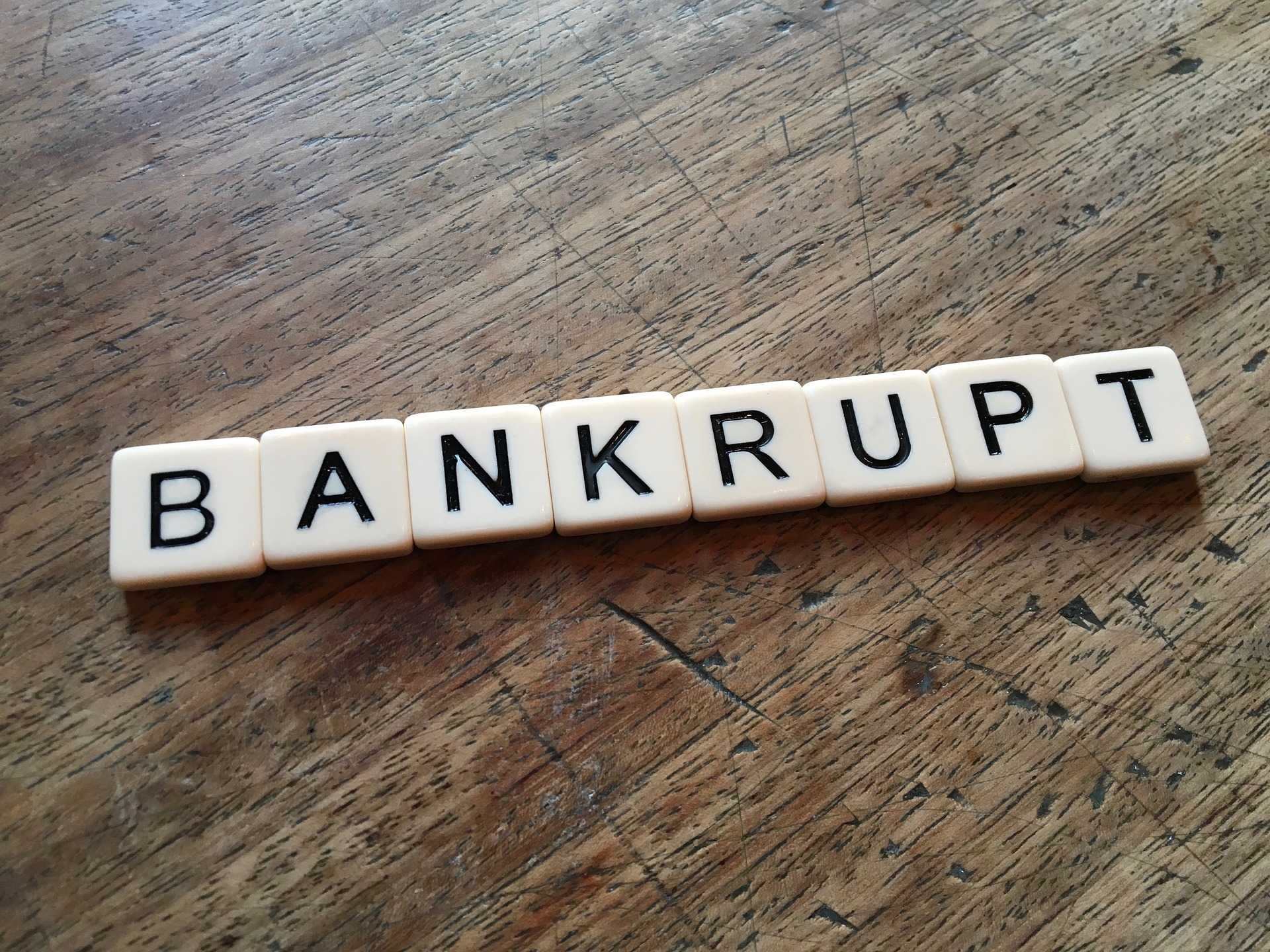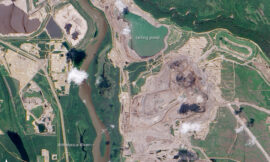In this episode, we talk about what an operator filing for bankruptcy may mean for mineral and royalty owners as well as some actionable steps you can take to protect your interests.
Be sure to subscribe on iTunes and while you are there, please leave a review (or subscribe and review wherever you normally listen to the show). It only takes a minute and it really helps us out in gaining exposure so that other mineral and royalty owners can benefit from this information too.
Using the embedded player above, you can download the episode to your computer or listen to it here!
What is Bankruptcy?
Bankruptcy is a complex legal process that companies or individuals go through when they are unable to pay their outstanding debts. Bankruptcies are dealt with in federal court and the different types of bankruptcies are referred to by the corresponding chapter in the U.S. Bankruptcy Code.
There are several different types of bankruptcy, but two of the more common types for oil and gas are chapter 11 and chapter 7.
- Chapter 11 Bankruptcy: this is commonly referred to as a reorganization. A Chapter 11 Bankruptcy may allow the operator to continue business while they go through the process. The outcome from a mineral owner’s perspective depends on their plan of reorganization and what is approved.
- Chapter 7 Bankruptcy: is also referred to as a liquidation. In other words, the company will no longer exist and the assets are sold to help pay debts. One type of asset that could get sold to another operator in a Chapter 7 Bankruptcy is your oil and gas lease.
What Does Bankruptcy Mean for Royalty Owners?
We are going to be very brief on the details since we are not attorneys. If you would like more details, download the free resource guide for links to some helpful articles we found on the subject.
First of all, it depends somewhat on the state. Of course, Texas is different and is generally considered favorable to royalty owners due to what is called the “First Purchaser statute” which can be found in section 9.343 in the Texas Business and Commerce Code.
In general, operator will continue to pay royalties because if they didn’t they would potentially be at risk of losing oil and gas leases. Since leases are one of the most valuable assets that they have, they will likely continue to pay royalties after declaring bankruptcy.
That said, sometimes they may stop royalty payments before declaring bankruptcy. If this happens to you, you may need to take specific steps in order to protect your rights. Contact an attorney who is familiar with oil and gas law for help.
Steps to Consider if Your Operator Files For Bankruptcy
- Double check your royalty statements against state oil and gas commission records to make sure you are getting paid correctly for oil and gas and plant products that were sold leading up to the bankruptcy filing and after as well.
- Bankruptcy can result in stoppage of royalty payments, reduction in royalty payments, or full payments (business as usual). This is why it is important to pay attention to your check stubs.
- Another thing to think about is who is paying you. Is the operator paying you directly or is a third party oil or gas purchaser paying you royalties?
- If you get paid directly by the operator then it is a more straightforward process if you stop getting paid royalties.
- A tricky situation can result if the operator outsources payment to a third party oil or gas purchaser. In other words when you get paid, are the check stubs directly from an operator or from a common purchaser. If you get paid by a separate oil or gas purchaser and they go bankrupt, you may have difficulty going after the operator for non-payment of royalties. Consult with an attorney if you are in this situation.
- Check your mail for bankruptcy notices. Usually royalty owners will receive the notice in the mail as most companies send the notice to all potential creditors which includes royalty owners.
- If you hear about your operator filing bankruptcy but don’t receive a notice, search federal bankruptcy filing notices and you should be able to find out more information including information on deadlines for when you need to file a proof of claim or proof of royalties owed to you.
- Pay attention to deadlines like the deadline to file proof of claims.
- If the operator stops paying you royalties, keep track of any ongoing production from the state oil and gas commission (or from a service like WellDatabase – you can use their free Lite plan to look up production on your wells) to understand how much you might be owed.
- Keep in mind that an operator may shut in production due to low oil or gas prices and you would not receive royalties in that situation (since there is no production). That is a different situation than the operator continuing to produce oil and/or gas for a given month but not paying royalties for that month. For more information on shut-in wells and things to consider in that situation, check out Episode 57: What to do When Your Wells Get Shut-in and Episode 53: Negative Royalties and What to Do When Your Well Gets Shut-In.
- Contact your attorney to get advice as to what type of documentation to collect and submit to secure your claim.
Types of Documents That Your Attorney May Request
These are documents to consider keeping organized for many reasons but if you do need legal assistance with a bankrupt operator not paying you royalties, your attorney may ask for the following information:
- Copy of your oil and gas lease
- Copies of any division orders with that operator
- Copies of your latest check stubs showing you as the owner
- Copies of any oil and gas commission production data for any wells you are owed royalties on.
- Calculations of potential royalty income that you have not been paid. Check out my YouTube Video on How to Estimate your Oil and Gas Royalty Check for instructions on how to do this. In this video I talk about future royalties but you can follow the process I outline for historical production as well (just skip the whole decline curve section and go to the end). To summarize, you would need to multiply the production for each well by the estimated oil or gas price for that month, and then multiply the result by your Net Revenue Interest in that well.
Things to Consider When Leasing Your Minerals
If you sign an oil and gas lease before an operator declares bankruptcy and you never get paid the bonus check., contact your attorney to see if you can terminate the lease. This is one of the reasons why it is a good practice to ensure that you receive certified funds (e.g. wire transfer or cashier’s check) before handing over the executed oil and gas lease. Once you hand over the lease to the Lessee, you hand over any leverage you might have had in the negotiation.
There are also things that you can do to protect yourself when signing a new lease if the operator declares bankruptcy in the future. You can add language that allows you to terminate the lease if they file for bankruptcy and they stop paying royalties. Again, contact your attorney for specifics.
Stay Informed
With the wave of oil and gas companies likely to declare bankruptcy in 2020, it is a good idea to stay on top of the news for any operators that you receive royalties from.
Specifically, you can Google the operator’s name and look for any news articles that mention them (especially those that discuss their financial situation). You can also go to the operator’s website and look for any press releases for more information.
Finally, you can search the federal bankruptcy case records online for a small fee. You may receive notices if your operator files bankruptcy but if you need to search the court records yourself, you can.
Resources Mentioned in this Episode
Disclaimer: The information contained on this website and in the Mineral Rights Podcast episodes should not be construed as legal advice on any subject matter. All information, content, and references on this site are for general informational purposes only. This website links to other third-party websites. These links are provided as a convenience to our listeners/readers and the Mineral Rights Podcast and the hosts do not recommend or endorse the contents of the third-party sites. You should not act or refrain from acting on the basis of any content included in this guide without seeking legal advice from counsel in the relevant jurisdiction.
Thanks for Listening!
To Share your Thoughts:
- Leave a comment or question below (we read each one and your question may be featured in a future episode)!
- Ask a question or leave us feedback via email or voicemail: (720) 580-2088.
To help out the show:
- Leave an honest review on iTunes or wherever you get your podcasts – we read each one and greatly appreciate it. Plus, you can get a shout out on a future episode!
Thanks again – until next time!




